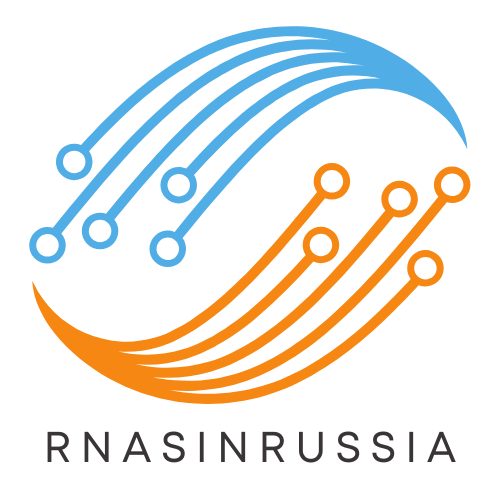Table of Contents
ToggleIn a world where computers run the show, exploring computer science isn’t just a choice; it’s practically a superpower. Imagine wielding the ability to create apps that make life easier or designing algorithms that can predict the next viral cat video. It’s a realm where creativity meets logic, and the possibilities are endless—kind of like trying to find a matching sock in the laundry.
What Is Computer Science?
Computer science is a multi-faceted discipline that combines creativity and logic to solve complex problems. It encompasses the study of computers and computational systems. Professionals in this field design algorithms, develop software, and create applications that improve our daily lives.
The core areas of computer science include programming, data structures, software engineering, and artificial intelligence. Programming involves writing code in languages such as Python, Java, or C++. Data structures represent and manage data efficiently, making it easier to access and manipulate.
Software engineering focuses on the systematic design and development of software applications. This area emphasizes best practices and methodologies, ensuring that software is both functional and sustainable. Artificial intelligence explores the capacity of computers to mimic human intelligence, enabling advancements in machine learning and natural language processing.
Applications of computer science extend across various industries. Finance professionals use algorithms to optimize trading strategies. Healthcare providers employ technology to manage patient records and enhance diagnostics. Education incorporates computer science to create interactive learning environments.
Computer science fosters innovation and critical thinking. Individuals equipped with computer science knowledge contribute to advancements that shape society. The discipline’s expansive curriculum offers opportunities for exploration, from web development to cybersecurity. Students and professionals alike can harness the power of computer science to drive change and creativity.
Through exploring this field, individuals unlock the ability to create solutions that address real-world challenges.
The Importance of Exploring Computer Science

Exploring computer science equips individuals with essential skills in today’s digital landscape. This discipline deepens understanding of algorithms and programming languages, driving innovation across industries.
Understanding Algorithms
Algorithms serve as the backbone of computer science. These step-by-step procedures enable problem-solving across various applications, such as sorting data or optimizing search results. Each algorithm varies in complexity and efficiency, impacting performance. For instance, a well-designed algorithm can drastically reduce processing time, which proves crucial in fields like finance and healthcare. Awareness of different algorithms enhances critical thinking, allowing individuals to select the best approach for specific challenges.
The Role of Programming Languages
Programming languages provide the tools to implement algorithms effectively. Each language offers unique features suited for diverse tasks. Python, known for its readability, benefits beginners in data manipulation. Java, an object-oriented language, excels in large-scale applications. Mastering multiple programming languages allows flexibility and adaptability in problem-solving. Familiarity with these languages expands career opportunities, making individuals more competitive in the job market. Understanding their role enables effective communication with technical teams and enhances collaboration on complex projects.
Career Opportunities in Computer Science
Exploring career opportunities in computer science reveals a wealth of options for aspiring professionals. Each path offers unique challenges and rewards.
Software Development
Software development stands out as a primary career choice in computer science. Developers create applications that meet user needs or solve specific problems. Mastery of programming languages like Python or Java enhances a developer’s skill set, allowing for efficient coding. Companies seek developers who can work in collaborative environments, as teamwork often leads to innovative solutions. Skills in software engineering also promote systematic application design and maintenance, ensuring that products perform reliably over time.
Data Science
Data science has emerged as a vital field within computer science, focusing on extracting insights from large data sets. Professionals in this domain analyze data to help businesses make informed decisions. Skills in statistics and programming languages like R or SQL play a crucial role in this process. Data scientists also utilize machine learning techniques to predict trends and automate decision-making. The demand for data-driven insights continues to grow, making this area particularly attractive for those interested in analytics and problem-solving.
Cybersecurity
Cybersecurity offers promising career opportunities, protecting organizations from digital threats. Experts in this field identify vulnerabilities and implement measures to secure systems and data. A solid understanding of network protocols and encryption techniques is essential for success in cybersecurity. Certifications like Certified Information Systems Security Professional enhance an individual’s credentials and marketability. As cyber threats continue to evolve, the need for skilled cybersecurity professionals becomes increasingly critical, ensuring both personal and organizational data remains safe.
Practical Applications of Computer Science
Computer science shapes daily experiences and drives innovation across sectors. Its influence manifests in numerous practical applications.
In Everyday Life
Smartphones illustrate how computer science enhances daily routines. Apps simplify communication, navigation, and entertainment, making life more convenient. Online shopping relies on algorithms to suggest products and streamline purchasing processes. Social media platforms leverage data analysis to personalize user experiences and promote connections. Furthermore, home automation systems allow individuals to control devices remotely, showcasing computer science’s role in enhancing comfort and efficiency.
In Various Industries
Industries deeply integrate computer science to maximize efficiency and innovation. In healthcare, electronic health records improve patient care by streamlining information access and management. Finance utilizes algorithms to analyze stock trends and optimize trading, resulting in more informed decisions and increased profitability. Education benefits from e-learning platforms that personalize student experiences and provide access to resources. Manufacturing processes embrace automation and robotics, increasing productivity and precision while reducing human error. Each sector demonstrates how computer science propels advancements that transform operations and enhance outcomes.
The Future of Computer Science
Emerging technologies reshape the landscape of computer science, with significant advancements on the horizon. Artificial intelligence continues to drive innovation, leading to more efficient problem-solving approaches and creating new career opportunities. Industries leverage machine learning to enhance automation, improving productivity and refining decision-making processes.
In addition, data science gains prominence as organizations turn to big data analytics for analyzing complex trends. Professionals adept in statistical methods and programming play crucial roles in interpreting vast datasets, leading to informed business strategies. Cloud computing broadens access to powerful tools and resources, fostering collaboration across global teams.
Cybersecurity remains vital in today’s digital era, as increased online activity heightens the risks associated with cyber threats. Skilled experts protect sensitive information while developing advanced security protocols. Moreover, the integration of blockchain technology revolutionizes data management, enhancing transparency and security across sectors.
Students increasingly focus on interdisciplinary learning, combining computer science with fields like biology and economics. This broad perspective cultivates innovative thinking, promoting unique solutions to pressing global challenges. Furthermore, the rapid evolution of programming languages encourages adaptability among developers. New languages emerge, each designed to tackle specific problems more effectively, showcasing the versatility of the field.
Interest in ethical considerations within technology also rises, prompting discussions about responsible computing. As computer scientists develop and deploy solutions, they must consider social implications, ensuring technology benefits society as a whole. Engaging in these conversations prepares future professionals for anticipated challenges, positioning them for success in an ever-evolving landscape.
Exploring computer science opens doors to a dynamic world filled with opportunities. As technology continues to evolve the skills gained in this field empower individuals to tackle real-world challenges. From developing innovative applications to enhancing data-driven decision-making the impact of computer science is profound across various industries.
The future is bright for those who embrace this discipline. With emerging technologies reshaping the landscape the potential for creativity and problem-solving is limitless. By engaging with computer science individuals not only enhance their career prospects but also contribute to advancements that benefit society as a whole. The journey in computer science is just beginning and the possibilities are endless.





